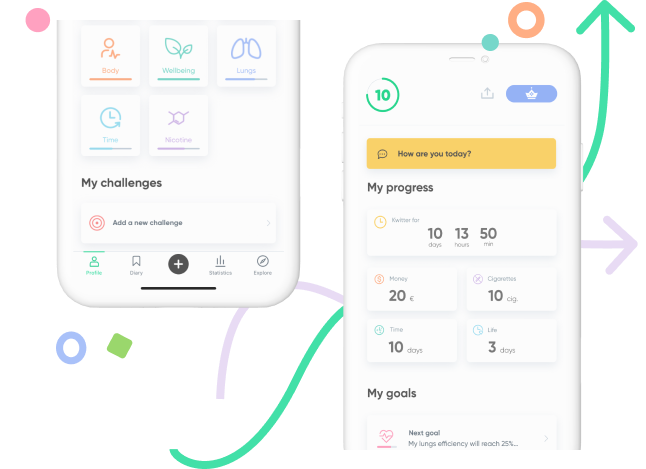May 19, 2021
Science
COVID-19 and smoking: are smokers more at risk?
We have been living with the threat of COVID-19 for over a year now and not all of us are equal. Are smokers more at risk?
The coronavirus pandemic that began in December 2019 has affected nearly 125 million people worldwide, and nearly 3 million have already died. Risk factors predispose some individuals to develop more severe forms of COVID-19, including age, being male, having respiratory or cardiovascular disease, diabetes or hypertension. Given these elements, it would seem fairly obvious to classify smoking as a risk factor for severity, as smoking is known to be an important cause of respiratory and cardiovascular comorbidities. More than one year after the appearance of COVID-19, can we say that smokers are more at risk of this disease?
Are smokers more at risk of COVID-19? Studies are still in progress
The available data remain contradictory: some studies show that smoking predisposes to increased severity and worse prognosis for SARS-CoV-2 carriers, while others don’t establish a clear link. It appears, however, that these conflicting results are largely due to methodological differences between these studies, some of which have been judged to be of poor quality by the scientific community. Taken in isolation, they are therefore difficult to interpret.
Some studies have even claimed that smoking could be a protective factor against severe forms of COVID-19, and these have received significant media attention, even though they were not published following the rigorous peer review process (i.e., reviewed by other researchers who were not involved in the research being reviewed). The World Health Organization has warned against such non-evidence-based claims. For the moment, there is no concrete and definitive evidence that tobacco, or any of its components, provides any protection against severe forms of COVID-19.
It appears that within the components of tobacco, it would be precisely nicotine which could possibly have a protective role. A rigorous study is underway in several Parisian hospitals to provide answers about the possible protection that nicotine could provide to caregivers in preventing COVID-19 infection (APHP press release). But to date, no definitive element pleads in favor of this hypothesis.

Increasingly clear links between COVID-19 and smoking
A meta-analysis (Reddy et al., 2020) pooled the results of 47 studies on the association between smoking and COVID-19, processing data collected on more than 32,000 patients hospitalized with coronavirus infection. More than a quarter of the patients analyzed were either smokers at the time of hospitalization (1501), former smokers (5676), or categorized as smokers without further clarification (1240).
The analysis showed that active smokers hospitalized for coronavirus infection had a nearly doubled risk of developing a severe form of the disease compared to non-smokers and former smokers. However, these results remain difficult to interpret because of considerable methodological heterogeneity among the included studies.
However, other clearer results emerged from the analyses. Compared to people who never smoked, all current and former smokers had more than a 30% increased risk of developing severe COVID-19, a 26% increased risk of dying from COVID-19, a 20% increased risk of needing mechanical ventilation, and a more than doubled risk of having an adverse outcome from SARS-CoV-2 infection. These findings indicating that smoking predisposes to more severe forms of COVID-19, and that smokers are therefore at greater risk, were confirmed in a more recent meta-analysis (Zhang et al., 2021).
In addition, beyond the direct impact of smoking, there is the impact of cardiovascular, inflammatory and pulmonary pathologies linked to smoking, which make smokers more vulnerable to respiratory infections. Already during the last epidemic of coronavirus (MERS-CoV), smokers showed an increased risk of severe form and death from this infection. Smoking and passive smoking also contribute to the diffusion of the virus towards the entourage, since these practices are done without masks and imply deep exhalations able to convey viral particles; however, we know today that SARS-CoV2 is essentially transmitted in this way.
Unfortunately, the stressful and anxiety-provoking situation we are in has led to an increase in addictive behaviors, including smoking among about 40% of smokers, especially among those most heavily addicted to nicotine, and 75% of them attribute this increase in consumption directly to lock-down (MadeInVote and Kwit survey). Governments have a risk factor of severity in front of them that they can influence through effective public health policies, particularly by actively promoting smoking cessation. In this context, mobile cessation aids have proven to be effective but still have too little place in the smoker's health care pathway.
If you want to quit smoking, Kwit can help you get started and see you through to the end! And for day-to-day advice, follow us on Facebook, Instagram, Twitter and LinkedIn!




